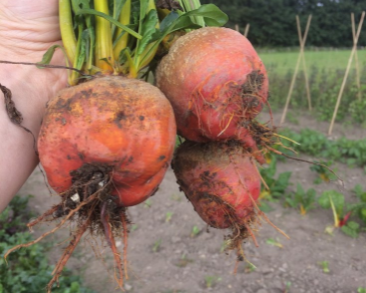Did you notice that food was hardly mentioned at COP26?
Surprising, considering the global food system causes around a third of greenhouse gas emissions!
What’s even more shocking is that there was a huge number of food industry representatives in attendance yet hardly any mention of food as both part of the problem and the solution. Whilst we understand changes to our food system will be complex, we cannot help but wonder if the lack of food on the COP26 agenda was down to behind the scenes industry lobbying.
Food at COP26
The UN Climate Change Conference of the Parties (COP26 for short) was held in Glasgow between the 31st October – 13th November 2021. COP26 brought governments and organisations together to speed up action towards the goals of the Paris Agreement and the UN Framework Convention on Climate Change. A large focus was on developing economies to switch to green technology and sustainable practices. This includes changing our food system to reduce the emissions that fuel the climate crisis. Here’s what COP26 got right:
- 80% of the food served at the conference was seasonal and sourced from Scotland.
- Main food-related events included: ‘The Global Role of Food Systems in Addressing the Twin Threats of Climate Change and Biodiversity Loss’ and ‘Measuring What Matters: Towards a Consistent Approach on Data and Labelling for Supply Chain Resilience.’
- Side events included: ‘Act4Food Act4Change: Calling all young people to be agents of change in food systems transformation’ and ‘Fairtrade Farmers: Our Food and the Fight for Climate Justice.’
And here’s what was left wanting:
- Each day at the conference was framed with an overarching theme, such as finance or energy. Food was not featured. The two main food-related events mentioned above were slotted under Nature.
- There were at least 75 representatives from 32 food and drink companies and/or trade associations that attended COP26, some of which were included within countries’ delegations. British retailer Sainsbury’s and the multinational consumer goods company Unilever were among the principal partners. Their influence and power is huge, yet neither lead the way in developing food strategies.
- Of the top G20 countries with the highest meat and dairy consumption (Australia, Brazil, Japan, Mexico, New Zealand, Russia, UK, USA) only Mexico and the UK specifically referenced dietary change in their national climate plans. Yet neither mention specific plans on achieving dietary change in the population nor made direct reference to meat and dairy.
- Arguably one of the worst outcomes of all is the absence of food, farming or agriculture in the final text of the main Glasgow Pact.
Governments and organisations need to act. Changing our food system is vital to prevent further climate crises and ensure our communities can access food. While COP26’s outcome is disappointing, we can make a real difference here in Sheffield with local action. ShefFood is working with organisations and enterprises across the region to put sustainable food back on the menu!
Reaching the COP26 Goals with ShefFood
COP26 outlined 4 goals to work towards. Here’s how ShefFood and its partners are working towards them.
1. Secure global net-zero by mid-century and keep 1.5 degrees within reach
We are focused on local, sustainable food. This is not only good news for Sheffield’s economy and for securing the supply chain, it also means fewer food miles, reduced greenhouse emissions and less energy consumption. With the help of the City Council, we are looking to utilise land for urban farming and fruit tree planting. This is part of a strategic approach to the management of green spaces so that carbon can be stored in both plants and soil.
2. Adapt to protect communities and natural habitats
By switching to regenerative or ‘nature-friendly’ approaches to farming in the Sheffield City Region, we’ll be encouraging the return of wildlife. Agroecological food production supports biodiversity and restores ecosystems – nature is an active partner in this process. Well-managed soils, where microorganisms are encouraged to build networks, are more able to resist erosion and act as a soakaway during extreme rainfall events. Combined together this reduces risk of severe flooding and limits the disruption caused to communities downstream.
3. Mobilise finance
To deliver on our goals, we apply for funding and grants to aid our work. This means we can reach more people – giving them a voice in the local food system, and support our partners to lead public events focusing on the role of sustainable food in building thriving, healthy communities. Finance will enable promotion, with our educational partners, of the skills required to take on emerging roles within the local food sector.
4. Work together to deliver
Taking inspiration from the closing statements of COP26, “We can only rise to the challenges of the climate crisis by working together.” ShefFood is all about collaboration. We are a hub for all things food-related in Sheffield. By working with our partners, Sheffield City Council and anchor organisations like Sheffield Hallam University and the University of Sheffield, we change the Sheffield food system for the benefit of all.

